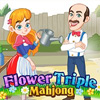Raising Kids With Character
Eight Ways to Raise Secure Kids (Part 3)
The Ability to be Honest
In 1965 the Catholic philosopher, Dietrich von Hildebrand, wrote a book called The Art of Living which outlined seven “cardinal virtues” that are necessary to live a grounded life. In 1994 his wife, Alice von Hildebrand, added an eighth chapter bringing the total of cardinal virtues up to eight.
These virtues, although presented in a spiritual way, are good virtues and should our kids learn them will guide our children through life with confidence in a world in which assured security seems to be less and less probable. These are short summaries of the von Hildebrand’s wonderful chapters and don’t do them intellectual justice, however if applied, I know will change the lives of you and your children.
Virtue number 3: The ability to be honest (with oneself and others)
Untruthfulness involves irreverence towards reality ~ Dietrich von Hildebrand, The Art of Living
When I was about 9 years old I was our neighbour’s farm waiting my friend Elaine to finish supper so that we could play outside. Elaine’s house was fun – they had a teeter totter! There are so many things you can do on a teeter totter like jumping off when your friend is up high (hilarious) or trying to get it to work if you are both sitting near the middle. By yourself there is only so much you can do, however, and I was doing it; walking up the plank (which is all Elaine’s teeter totter was) and then slamming down the other side and running off. Pretty simple stuff, but I figured I was so talented that I might be headed to the circus one day!
Well, I fell off – and shoot that hurt. I had a pretty big rash that was bleeding and bruised. All this is fine, it’s the stuff of regular farm life, but what happened next was an unexpected turn; when I went in to tell Elaine’s parents that I had to go home because I had hurt myself – I told them it was because I fell off the swing.
What on earth? Why lie about something so insignificant? I’m not sure if I had been warned not to walk up the teeter totter but for some reason I was embarrassed and I lied (which was doubly dumb because the teeter totter and swings were right outside the kitchen where everyone had watched me fall off the teeter totter… and not the swings.)
Needless to say, Elaine’s dad called my dad to tell him I had lied to him, my dad tattled on me to my mom and when my mom cornered me in the kitchen to find out why I had been dishonest, I didn’t know!
I wasn’t much of a liar growing up – but clearly there were times when lying served a purpose in my mind and I fell trap to the vice. And it was a serious vice in my house! My dad tells me that when he was a kid there were two cardinal sins you could commit in his home, one was disrespecting mother (my grandmother) and the other way lying. There are all sorts of fun stories that have been passed down through the generations about liars and their inevitable discipline. That high value of honesty was present in our home as well and while I don’t remember if I was particularly disciplined after teeter-gate, I do remember being embarrassed and maybe that was discipline enough.
There are few virtues that I care more about than honesty. Which why when I read Dietrich von Hildebrand’s definition of reality, “Untruthfulness involves irreverence towards reality” Remember (from part 1) that wonder is reverence towards reality; lying is the stark opposite. Lying will destroy our ability to wonder!
I can’t stand the feeling of being lied to, but more than that, with dishonesty there is real danger! When we misrepresent reality we might find ourselves in physical harm (lying about being away from the river, when in reality we were playing on the banks), but there is also emotional danger. If our kids misrepresent how the bully at school made them feel, that is they lie about how they are feeling, we will be unable to help them heal from that wound. As we elevate the value of honesty in our homes we will help our children to feel physically and emotionally safe – in other words, honesty is critical to their security.
Lying is typically about maintaining an illusion safety. For example, I knew of one young lady who grew up in poverty but her mother always had her eyebrows waxed, her nails done and, most surprising, usually wore name brand clothing. It didn’t matter that there wasn’t healthy food in the cupboards (never mind furniture to sit on while eating), it was better to have that one designer hoodie and appear rich than to be healthy on the inside. They lived an illusion of safety. Their lies made them feel safe in a judgemental world.
Having kids from hard places in our home we have experienced more lying than we ever could have imagined. But every child in care lies for a reason and that is usually either self-preservation or self-aggrandisement to appear better than is actually true. I don’t accept bad behaviour, but I also know that behaviour always follows belief, so if a child feels that lying will either impress me or keep me from hurting them, then I need to address the belief first and then the behaviour. I need to help all the kids in my home, biological or temporary, understand that there isn’t any reason to lie because they will always be safe and loved as they are.
Lying outwardly almost always betrays inward deception. If your child believes they are stupid (a lie), they will struggle to learn. If your child believes they are fat (based on the cultural skinny lie), then they will struggle with their self-image. If your child believes they are entitled (a near modern-day epidemic), then they will carry themselves with arrogant self-confidence. All the inner deceptions they believe will always bleed to the surface! The deception bombarding our kids is acute and many fall prey to this savage enemy.
On the other hand, there are also kids who are oddly too honest, which also isn’t healthy. They don’t have a filter and will say just about any thought that crosses their minds. These are fun kids to have in my youth group, we can learn some fabulous things about their parents, but not so fun when they are my kids! So in balance we need to also help our kids to learn how much is appropriate to share and with whom.
So what can we do as parents? Here are some suggestions:
- Assess honesty in your life and in the life of your kids. Do you lie? You might quickly dismiss lying as a child’s problem – but if you overspend, buying things on credit which you cannot pay back, you are lying to yourself! Credit is an illusion! Do you tell accurate stories – or are they exaggerated? What about your kids? Do you know when they lie? Do you know why they lie to you? (Are they afraid of how you might react to the truth?) Can you identify what lie they have inwardly believed that is causing the outward behaviour?
- Work to restore lost honesty! You can always start somewhere if lying has crept into your home. Reinforce the message “In this home we tell the truth and you never have to worry about it.” If this hasn’t been your history as a parent your kids may have to grow to understand that you mean what you’re saying and that means that when they do something really bad or disgusting, you stick by your word. That isn’t to say there aren’t consequences for actions – there always need to be consequences – but it means they are fair and always dealt out with love. And always reward honesty!
We live in a deceptive world – everyone lies! It’s no wonder there is such profound insecurity around us. Be different as a family! Be devoted to love first and truthfulness second.
Thom Van Dycke has worked with children and youth since 2001 and is a passionate advocate for healthy foster care. Together with his wife, since 2011, they have welcomed 30 foster children into their home. In 2017, Thom Van Dycke was trained as a Trust-Based Relational Intervention Practitioner.




